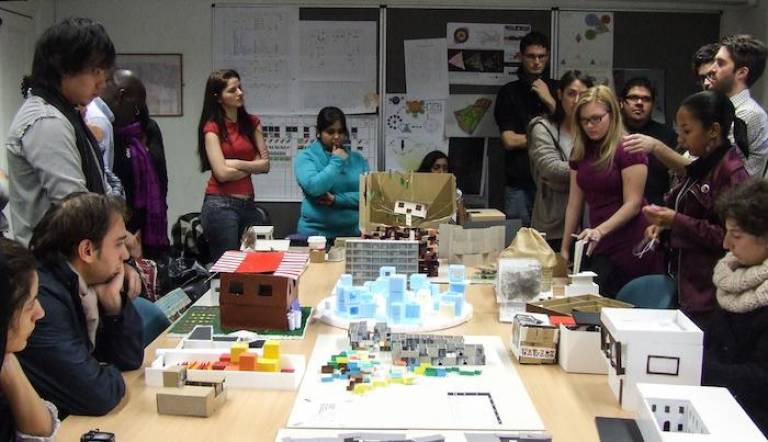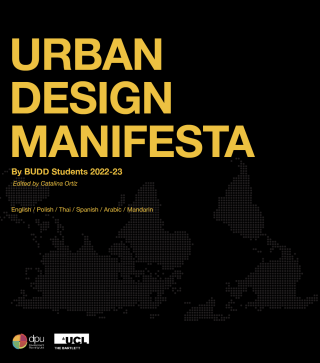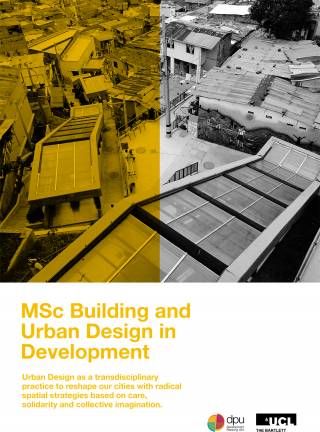Starting from the concerns of local communities, the Urban Intervention Studio is a transdisciplinary practice module running in term one of the Building and Urban Design in Development MSc.

About our Urban Intervention Studio
The Urban Intervention Studio forms the term one component of our practice-based module 'Spatial Design Practice' on the Building and Urban Design in Development MSc, which is delivered through teaching and collaborative and reflexive learning in our studio. It provides an opportunity for students to put into practice their theoretical and methodological learning as they tackle a sequence of projects through a learning-by-doing as basis for the design research approach.
We introduce various analysis methodologies use them as a vehicle to conduct detailed investigation and interpretative responses. Through the exploration of alternative modes of urban engagement and action research practices, our Building and Urban Design in Development MSc students work towards developing, designing and visualising their urban design interventions that are grounded in the principles of social and environmental justice.
We introduced three core projects:
- A studio based case study that is studied remotely. This may involve investigating one or two study areas using an analytical framework to guide students through the research design process.
- An overseas practice engagement where our students undertake a longer field-based expedition and get the opportunity to work with local organisations and community groups who are delivering bottom-up processes of urban change. In recent years, we have conducted our overseas practice engagements around cases in Cambodia, Thailand, India, the Philippines and Colombia.
- A BUDDcamp that took our students to a European city to discover and tackle how social-cultural tensions can manifest themselves in urban space, and how in turn, urban space impacts these social-spatial outcomes. Please note: BUDDcamps are no longer being offered by the Building and Urban Design in Development MSc.
Each project starts with a real live case, centered on addressing the concerns of local communities who are dealing with conflicting development agendas. This might entail the response to top-down redevelopment plans, the provision of housing for marginalised communities, land conflicts, risks of eviction, and other forms of social exclusion. These uneven patterns of investment, differences of class and ethnicity, and the quest for security contribute to the emergence of socio-spatial injustices at multiple scales which can be conceptualised as ‘boarder-making practices’.
By exploring the multiplicity of urban boarders (their topological and topographical nature, agency and potential) in the context of two contested cities, our Urban Intervention Studio work unfolds in a process of distinct, yet overlapping and complementary phases, each designed to explore processes of spatial design research, using a comparative framework as a lens of analysis.
Student blogs from our Urban Intervention Studio
Discover student blogs that showcase the work undertaken by Building and Urban Design in Development MSc students during our Urban Intervention Studio. These blogs capture the outputs created during the course of the year and act as a platform for expressing group and individual reflections, challenges, and contradictions about conflicting and contested urbanisms in a broader-sense.
Connectivity along drainage canal and ’60 feet road’
A collection of student blogs from the Urban intervention Studio on Mumbai in 2017
Buddbai (Budds in Mumbai)
A collection of student blogs from the Urban intervention Studio on Mumbai in 2008-09
 Close
Close




